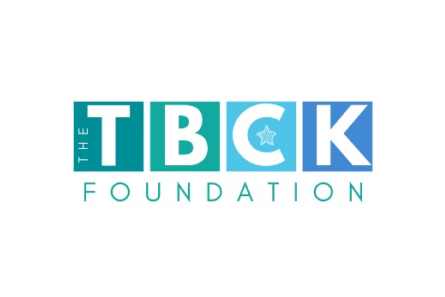The TBCK Foundation
Cycle 2
Named after a gene, TBCK or TBCK-ID Syndrome is an autosomal recessive neurological disease. There is a range and spectrum of the conditions and severity of impact of TBCK. In general, the major conditions are related to hypotonia (low muscle tone), epilepsy, and intellectual disability.
Last updated 04/30/2025
Clinical
Disease Class
Genetic diseases
Neurological diseases
Body Systems
Cardiovascular / Circulatory
Digestive
Endocrine
Muscular / Skeletal
Nervous / Sensory
Renal / Urinary / Excretory
Respiratory
Organs
Bones
Brain
Eyes
Heart
Mouth / teeth
Muscles
Thyroid
Known Genetic Link
Yes, one or more genes directly cause the condition
causative_genes
TBCK
contributory_genes
None specified / unknown
Type of Inheritance
Autosomal recessive
Newborn Screening
No
Disease Mechanism(s)
Unknown
Age of Onset
Infancy (age 0-1)
Prebirth
Average Age at Diagnosis
Early childhood (age 1+-5)
Infancy (age 0-1)
Life Expectancy
Adolescence (12-17)
Adulthood (age 18-64)
Early childhood (age 1+-5)
Infancy (age 0-1)
Middle childhood (6-11)
Affected Sex(es)
Female
Male
National Prevalence
51-100
Global Prevalence
101-1000
National Incidence
Less than 10
Global Incidence
Less than 10
Populations and/or ancestry with higher prevalence
There is a Boricua variant identified in individuals of Spanish descent. Our prevalence study through The Broad indicates Carrier prevalence of 1/486 in the general population and 1/265 in Admix Americans. Prevalence of TBCK Warriors may be as high as 1/945,044.
Symptoms / Phenotypes
abnormal brain features
developmental delay
distinctive facial features
dysphagia
hyporeflexia
hypotonia
respiratory insufficiency / respiratory failure
seizures / epilepsy
speech delay
Biomarkers
Monitoring
· thyroid, cholesterol, seizure management
Existing Therapies
None
Organizational & Research
Cell Lines
Fibroblasts
Primary lymphatic endothelial cells
Cell Lines, Institution
Children’s Hospital of Philadelphia (CHOP)
University of Massachusetts (UMass)
Cell Lines, Involvement
Consulted
Cell Lines, share
Unsure
Disease Model
C. elegans
Drosophila/fly
Mouse
Zebrafish
Disease Model, Involvement
Consulted
Funded
Disease Model, share
Unsure
Clinical Trial Role
Not involved
Biobank, Institution
None
Center of Excellence, Institution
None
Registry
Yes, we have a registry that we created
Data Collected, Registry
Longitudinal natural history data
Patient contact info
Patient-reported data
Data Entered by, Registry
Patients
Platform, Registry
RARE-X
Natural History Study
Yes, we have collaborated on a natural history study
Data Collected, Natural History Study
Clinical endpoints (outcomes)
Electronic health records/electronic medical records
Genetic data
Imaging data
Medication usage
Patient-reported outcomes
Retrospective data
Platform, Natural History Study
RARE-X
REDCap
FDA Patient Listening Session
No
FDA Patient-Focused Drug Development (PFDD) Program
No
ICD Codes
Yes, we have an ICD-10 code specific to our exact disease
Diagnostic Guidelines
In the process of creating diagnostic guidance for our website
Science Advisory Board Policies
Yes, willing to share SAB policies
Research Network Policies
Has CRN and willing to share policies
Research Roadmap
Yes we have a Research Roadmap, and will share policies
International Chapters
None
International Partners
Europe
North America
